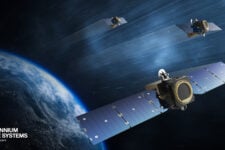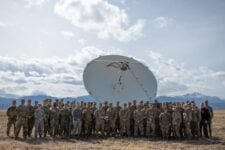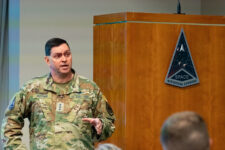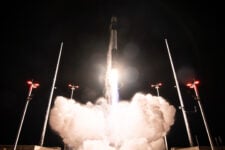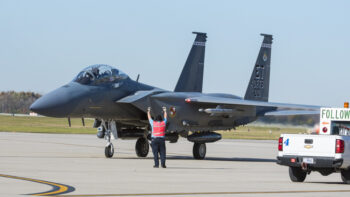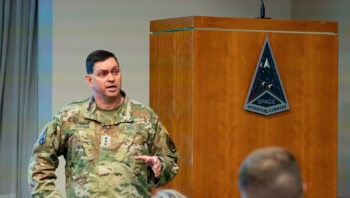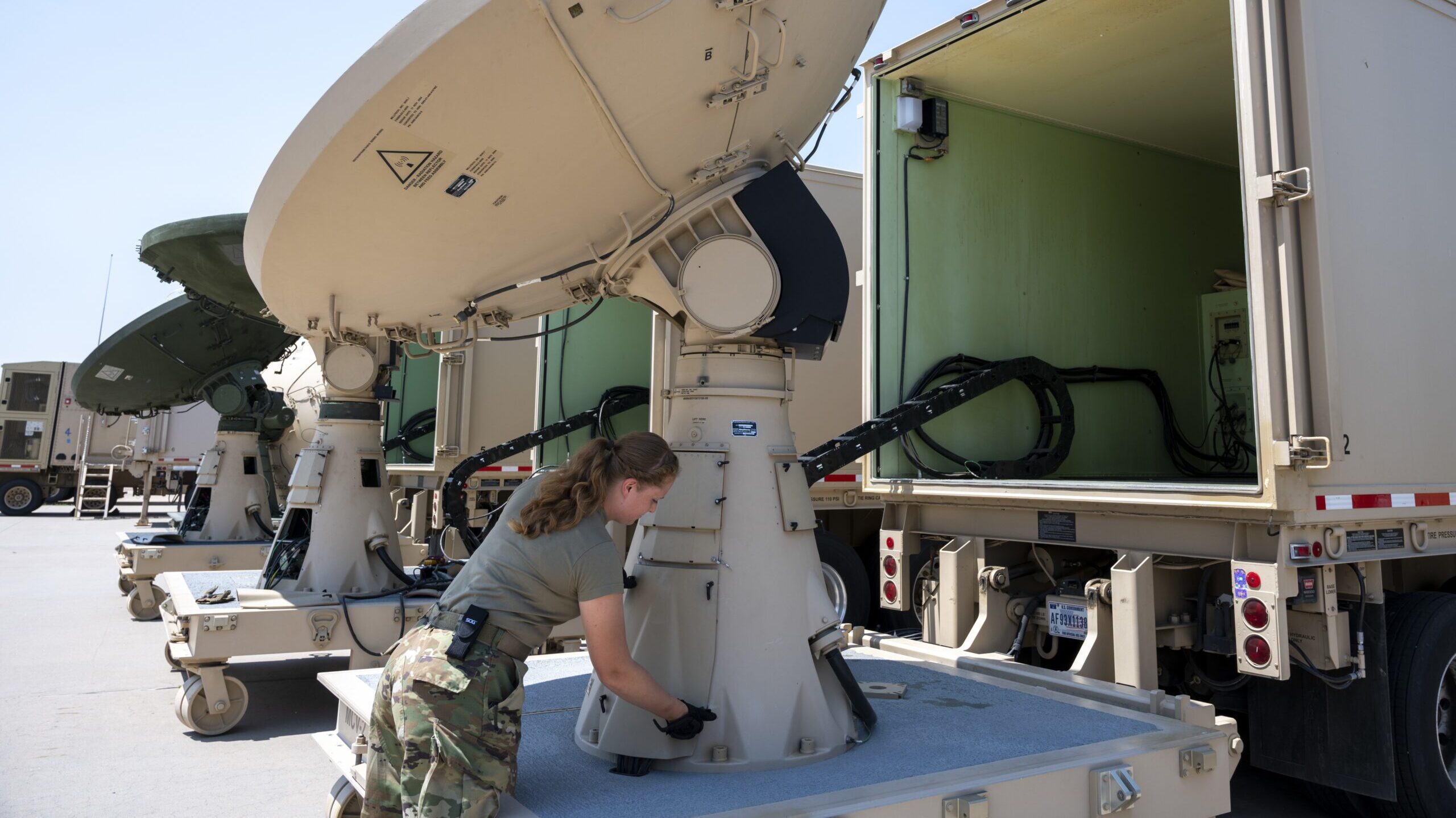
U.S. Air Force Staff Sgt. Rhyan Acey performs maintenance on the AN-TSQ-180 Milstar Communications Vehicle July 28, 2021 at the 233rd Space Group, Greeley Air National Guard Station, Greeley, Colorado. GANGS was the first National Guard unit to assume an Air Force Space Command mission. (U.S. Air National Guard photo by Master Sgt. Amanda Geiger)
WASHINGTON — While the National Guard leaders have yet to receive a response to their June letter to President Joe Biden pressing for a reconsideration of the administration’s opposition to creating a Space Force branch, they are hopeful that this year’s defense policy bill will force the Pentagon’s hand.
John Goheen, a spokesperson for the National Guard Association of the United States (NGAUS), told Breaking Defense that organization leaders expect the issue to come up in Senate debate on the fiscal 2023 National Defense Authorization Act (NDAA). While there isn’t language in the draft bill put out by the Senate Armed Services Committee (SASC), the version passed by the full House in June mandates the creation of a separate Space National Guard, he explained, and there are a number of senators who are actively supportive.
In May, California Democrat Diane Feinstein and Florida Republican Marco Rubio introduced draft Senate legislation to that end, signed by an additional 10 senators who have Air National Guard space units based in their states.
“They will consider it,” Goheen said. “This thing needs to happen next year, in the FY2023 authorization or 2024 authorization. The Space Force is moving out, and they’re leaving some very important units behind.”
The issue has been simmering ever since the creation of the Space Force in December 2019, with National Guard leadership vocally making the case for a new branch. Indeed, in early 2020 top Guard adjutants general broke with the Pentagon to speak out in favor of a separate Space Guard, and began a congressional lobbying campaign.
In 2021, the Biden administration publicly rejected [PDF] the idea of a separate Space Guard. The annual “Statement of Policy” (affectionately known as a “heartburn letter”) in response to the House version of the FY2022 NDAA cited costn as a key reason.
“Establishing a Space National Guard would not deliver new capabilities — it would instead create new government bureaucracy, which the Congressional Budget Office estimates could increase costs by up to $500 million annually,” the memo written by OMB said.
But Congress pushed back in the 2022 NDAA, requiring the Space Force to provide a study justifying any decision on whether and how it would integrate the some 800 members of the Air National Guard now performing space-related duties — a study that service officials have said will be completed in time for the results to be incorporated into the FY24 budget request.
The options on the table are to create a Space Guard, leave the space units in the Air National Guard and have it provide support to the Space Force, or simple fold the units into the new “hybrid Space Component” the Space Force is lobbying Congress to create. That Space Component would include both full-time and part-time Guardians.
In his letter to Biden on behalf of the group’s 45,000 members, NGAUS president J. Roy Robinson blamed the Office of Management and Budget (OMB) for blocking the creation of a Space National Guard based on “greatly inflated” cost projections due to a misguided assumption that all 50 states would stand up units.
“In fact, a Space National Guard at its inception would include only 1,000 space professionals in 14 units across eight states and territories. The start-up cost, according to the Pentagon, would be approximately $250,000 — the price to change signs and uniform name tapes,” Robinson wrote.
“The personnel are already on the payroll and the equipment and facilities are in place. A Space National Guard could grow in the future, but only to meet requirements specified by the Space Force,” he added.
Goheen stressed that in fact it is up to the Space Force, not the individual state governors, to decide how many units its Guard would stand up and where they would be based.
“This notion that every state is going to want some piece of this is ridiculous,” he said.

